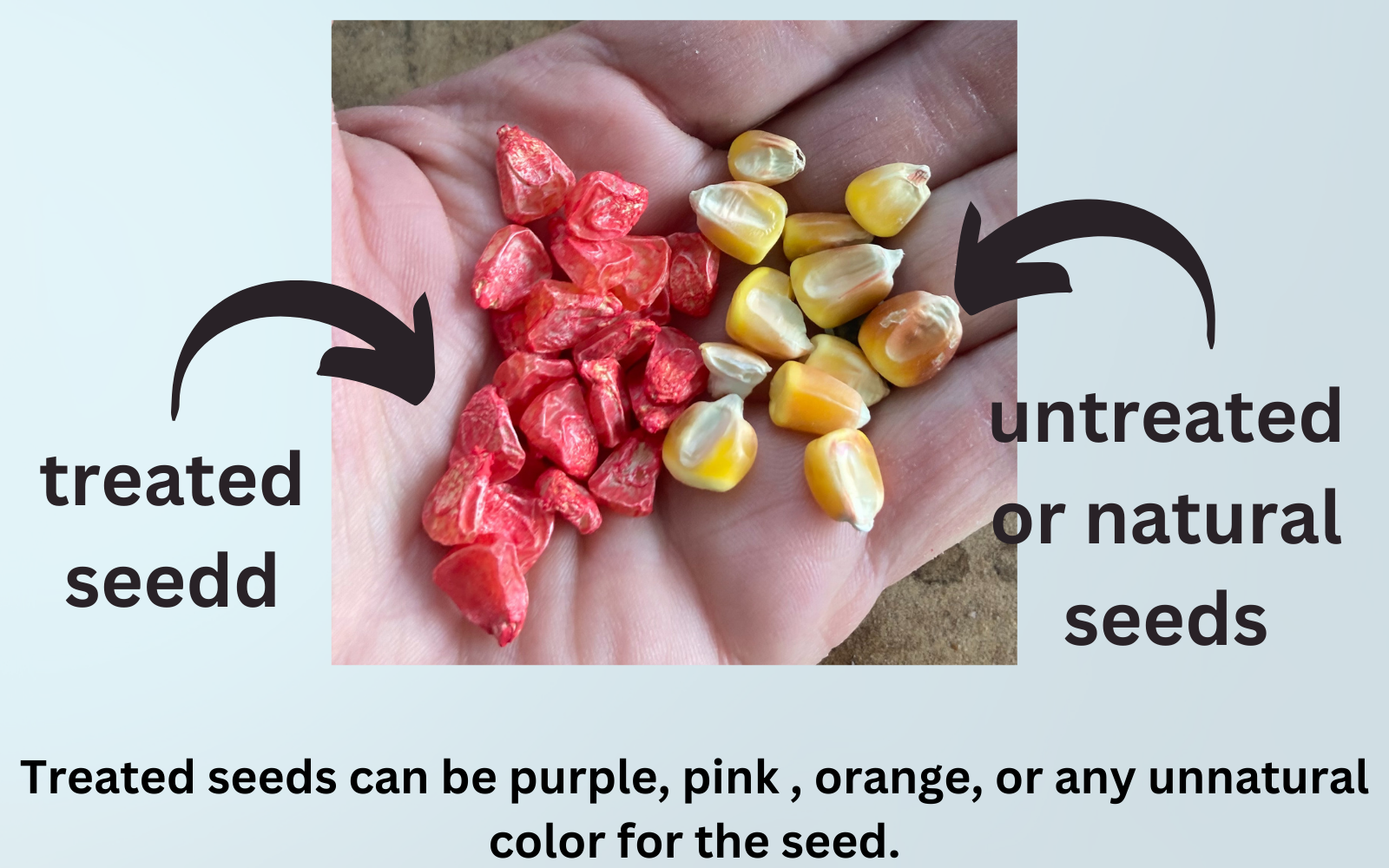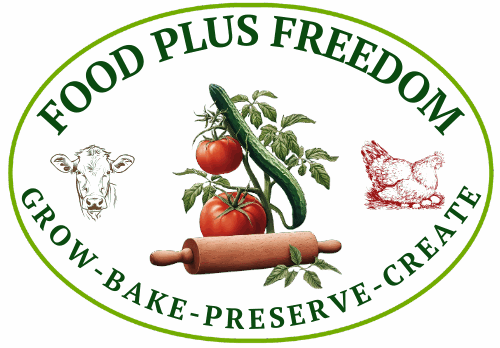Know Your Garden Seed, Don’t Worry About Toxins
Its garden seed time. If it’s snowing in your neck of the woods or you’ve already been planting, today is the perfect time to plan, expand, or get gardening. Before you move forward, answer the following questions for yourself.
1) Do you want healthier, cleaner food than you can get from the grocery store? Healthier, meaning fresher, because the fresher your food is, the more nutrient value it holds. Cleaner, meaning without pesticides, genetically modified, or bio engineered seeds.
2) Do you want more control over your food? More control means you decide on how much food you grow. You decide what type of seeds you plant and when you harvest. Plus, being able to save seeds for the next year.
By gardening, you take control over your food source. It may not be all of it, but every bit helps. This means learning to have control over your seeds, plant nutrition, and harvesting from seed to table. Why? remember in April 2020, Michigan had the garden areas of large stores roped off. If you don’t remember, here is an article from that time. https://www.forbes.com/sites/nicksibilla/2020/04/16/michigan-bans-many-stores-from-selling-seeds-home-gardening-supplies-calls-them-not-necessary/?sh=2fdb23055f80
If you want cleaner, heathier food, control from seed to table to seed, then stop growing like mainstream America. You’ll need to have a mindset change from growing food right now to growing food forever. From growing faster food to growing healthier food. Plus, stop growing food with a spray bottle and move to growing food with beneficial insects and plants.
This begins with buying or getting the right type of seed or seedling to start your garden.
Let’s dig in.
Types of seeds you want for gardening and saving seeds.
1) Non-GMO Seeds
Non-GMO (genetically modified) seeds are how seeds have been created. Seeds which have not been changed at the cellular level by humans. Non-GMO seeds are created from natural breeding methods, such as natural cross-pollinating and selective breeding. They carry traits from both of their parents.
You can save seeds from Non-GMO seeds and will have better results if the Non-GMO seeds are also open-pollinated.
Seeds that are deemed non-GMO can still be grown with synthetic pesticides and chemicals. The non-GMO name is how the seed is created, not how it was grown.
2) Organic Seeds
Organic seeds have been created through organic growing practices. Organic seeds are both how the seed was created and grown.
The seeds can be certified USDA organic or grown in an organic manner. Not all seeds that are grown organically have been USDA Certified. You must talk to the grower to be sure if the seeds don’t have the USDA Organic symbol on them.
The cost, manpower, paperwork and hassle of USDA organic certification is not worth it to all growers. Plus, there are many other buzz words that fit how people grow their seeds, such as, beyond organic, regenerative farming, permaculture, wild craft, etc.
In order for a seed to be certified organic, the soil cannot have any non-organic growing methods used on it for a minimal of three years. Seeds cannot have been grown with pesticides, herbicides, soil amendments, or soil which contain synthetic chemicals. Plus, organic seeds can not be genetically modified organisms (GMOs), bio-engineered, or irradiated.
Organic farmers concentrate on healthy soil for a healthy crop. This includes water conservation, sustainable agriculture, rotational growing, companion planting and non invasive natural bug control.
Organic seeds are always non-GMO, synthetic chemical, and synthetic pesticide free
Open pollinated refers to how a plant gets pollinated.
Open-pollinated seeds are pollinated through natural means, without the help of humans. Such as insects, birds, wind, etc. These plants produce seeds when pollen from a male flower or part of the flower naturally pollinates the female flower, or part of the female flower. Some plants have both male and female flowers on them. Other plants grow flowers with both male and female parts in each one.
The pollination can occur on the same plant, plants close by, or within the space span of an insect to fly. These plants can also pollinate like plants of different varieties.
Open pollinated seeds produce fruit which look like the parent plants. The traits and quality are passed from parent plant to child plant. They adapt to your soil and weather fairly easy.
This is important for saving seeds. Plus, the natural means of pollinating creates gene diversity, which means your plants are more stable and resilient for life long planting generation after generation.
Open-pollinated plants can and will pollinate other varieties of plants in the same species, giving you new varieties.
Open pollinated seeds may or may not be organic and/or heirloom. You need to check with the grower.
Heirloom Seeds
An Heirloom or Heritage seed is a seed that has been passed down from generation to generation. It has nothing to do with how the seed is pollinated, grown, or created.
However, a seed that is passed from generation to generation is normally non-GMO and open pollinated. Why? Because a GMO or bio-engineered seed will not hold its traits for longevity.
Heirloom seeds are considered extremely stable. After all, they have lasted the test of time. In order to survive, these seeds needed to adapt to weather, pests, and soil. They needed to have the best flavor, the best plant, and grow easily.
Stable Seeds – Not great for seed saving
F1 Hybrid seeds: These are how a seed is created not grown.
Most farmers grow F1 Hybrid seeds because they always give a uniform fruit and plants. It enables the farmer to know how much space they need for growing and approximate yield year after year.
Conformity may be important to a commercial farmer, but not a gardener. Especially one who wants control over their garden seeds.
Hybrid seeds are created by man with the use of nature, not by CRISPR technology. According to Frontiers in Genetics CRISPR is, “Technology Genome editing is a type of genetic engineering in which DNA is inserted, deleted, modified, or replaced in the genome of a wide variety of cell types and organisms, resulting in inactivation of target genes, acquisition of novel genetic traits, and correction of pathogenic gene mutations.” https://www.frontiersin.org/research-topics/17096/crispr-techniques-for-biomedical-engineering-and-functional-genomics
Meaning hybrid seeds are not bio-engineered. They are created through a controlled cross-breeding method between two different parent plants for whatever end result is desired. The seed gets crossed for more yeld, color, flavor, pest resistant, etc.
You can save seeds from a hybrid plant, but you do not know which traits you’ll gain from which parent plant. We’ve experiments(experimented) with hybrids in the past and have found some very cool fruits from the plants. They can be a fun experiment, but not a stable choice for saving seeds.
F1 Hybrid seeds are available in organic, non-GMO, and conventional seeds.
Avoid these garden seeds at all costs.
Genetically changed Organism (GMO), Geneticaly Engineered (GE), Bio-Engineered
I’m lumping all genetically modified terms into one. They can be called Genetically Modified Organism (GMO), bio-engineered, Genetically Modified (GM) seeds,or Genetically Engineered (GE) seeds.
All the above terms mean the seeds are altered through genetic engineering techniques or CRISPR which introduces or deletes specific traits or characteristics at the cellular level.
What is done to these seeds doesn’t happen in nature. Some Genetically Modified seeds contain herbicides, pesticides and many toxins in the name of growing. They’ve altered how a fruit or vegetable grows, stores, tastes, looks, etc. All without taking nature into concern. Plus, any seed that is saved from bio-engineered seeds can grow and pass on the toxins added by humans. The seeds are stable enough to determine a good yield and over time they lose their growing ability.
They are not a consistent or a reliable source of food year after year.
And genetically modified plants contain patents, meaning its illegal to save seeds and grow them the next year. There is no seed sovereignty.
Treated seeds

Treated seeds are seeds that have a coating added to them in order to help them grow. They may or may not be genetically modified. They may or may not be non-GMO but they can not be organic. Organic growers do not use treated seeds for they are coated with chemicals.
Chlorpyrifos insecticides are used for pests control and environmental stressors in order for a plant to grow. Right on the seed pack it says, “Do not use for food, feed or oil purpose”. If you can’t eat the seeds, you can’t eat the offspring of the plant. Unless you want toxin in you. Why? Think about it. The seed creates the plant, which created the food you eat.
Do you want food that starts from a toxic seed? Where do you think the toxic part of the seed goes? Into the soil and/or plant and then into you.
The seeds are not the correct color, because the coating is normally pink, orange or purple. Instead of having a yellow corn seed, you’ll have a pink one.
And if someone tells you that gardeners can’t get coated or genetically modified seeds, ignore them. The packages of seeds don’t always say coated seeds. There was a small warning label on the back of the package I had, but that was it. I’ve accidentally picked coated seeds up in a large box store, only to open the seed package to pink corn.
Plus, any garden center that buys bulk seeds then breaks them up into smaller packages can carry treated seeds. These treated seeds are sold to individual gardeners.
Conventionally grown garden seeds.
If you can’t find much information regarding the seed, don’t buy or use them. You don’t have enough information on what you’re getting.
There are a few rules of thumb. If it’s corn, unless told otherwise, it’s GMO. If it doesn’t tell you how it was grown, the plants were sprayed with chemicals.
What seeds should you buy and grow for health, sustainability and food freedom?
You want an organic, open pollinated, heirloom seed. Or organically grown seeds saved by a like-minded friend. Why? Because you know that seed has grown in your environment successfully.
If you can’t get the perfect seed, then don’t worry about the seed being heirloom. Organic, open pollinated, heirloom seeds are easy to find, especially from smaller seeds companies.
Gardening Creates Seed and Food Freedom
When you garden, you gain control over your food bit by bit. By understanding seeds and the best ones for your garden and your health, gives you an edge over store-bought food.
Choosing how you want to grow your food and how it starts is freedom.
Once you get growing, learn to save seeds for more freedom.
Grow Food – Eat Local – Gain Freedom

